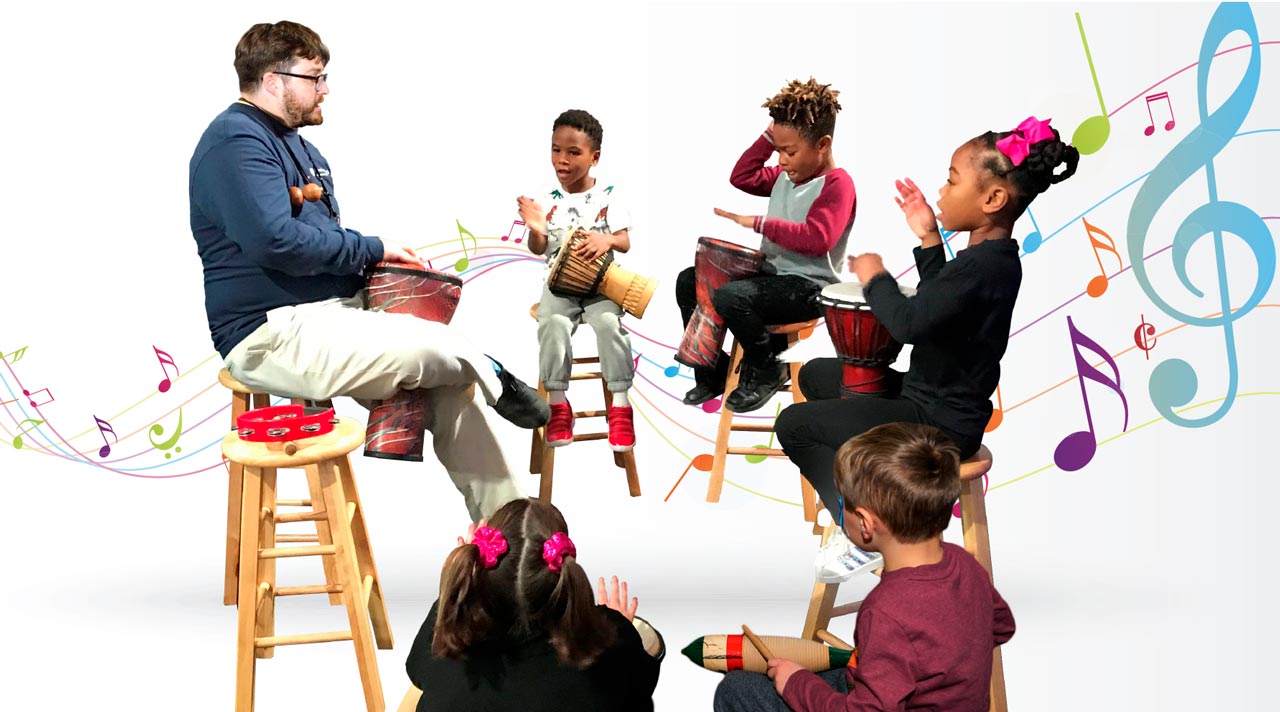At Moorestown, music therapy takes a patient-centered approach, with a flexible format that allows for spontaneity depending on the group’s needs. According to Andy Freedman, MA, MTBC (pictured below), Allied Clinical Therapist and board-certified music therapist at Moorestown, this is consistent with the value of music itself, which focuses on what’s happening in the moment.
“It’s a great opportunity to practice mindfulness,” says Freedman. “Like many creative arts, music also dips into the unconscious and brings it to light, which can generate insight about emotions that are often suppressed.”
Music therapy can help patients feel more grounded, which is particularly valuable for children who have trouble maintaining focus. In addition, patients gain experience with mastery through music. Creating an aesthetically pleasing experience can be empowering and help dissipate fears.
“It’s almost magical to see how music awakens something in people, enabling them to engage and connect,” adds Freedman. “At the same time, it can provide a healing energy needed for treatment. Learning to be in the moment is where the real progress is made.”
In addition to the Moorestown site, music therapy is available for adults at the Princeton House inpatient site.
Music in PracticeBehavioral health professionals can incorporate music into therapy through tactics like listening to a favorite song and discussing the emotions it evokes, according to Freedman. For more ideas, visit the American Music Therapy Association’s website at musictherapy.org. |
Article as seen in the Winter 2020 issue of Princeton House Behavioral Health Today.



